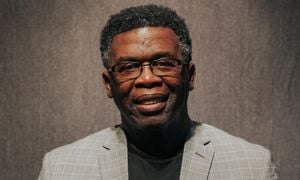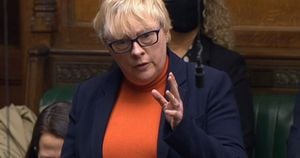Donald Trump has clearly set his focus on the Russia-Ukraine conflict, declaring it as one of his top priorities following his inauguration. His commitment was articulated during various international meetings and interviews, where he stressed the urgency of finding solutions to what he considers one of the most complicated issues on the global stage.
During his visit to Paris on November 11, Trump captured headlines by emphasizing the staggering loss of life resulting from the war. He pointed out the severe toll on both nations, highlighting the lack of urgency from the current administration to bring about peace. "Both countries are losing unbelievable numbers of soldiers, with hundreds of thousands dying," he remarked. He argues for immediate negotiations, insisting, "A ceasefire and negotiations must begin immediately." Trump believes swift action is necessary to prevent continued fatalities.
Trump also mentioned, albeit briefly, the situation in the Middle East, considering it less complex than the current crisis involving Russia and Ukraine. He noted, "The Middle East is also a bigger priority, but it's less complicated than Ukraine and Russia." These statements sparked discussions on what strategies might be employed to resolve these and other international tensions.
His remarks came during pivotal meetings with French President Emmanuel Macron and Ukrainian President Volodymyr Zelenskyy. It appears Trump and Zelenskyy had productive conversations, with Zelenskyy expressing gratitude for Trump’s commitment to resolving the conflict. The former president's assertion during the campaign, wherein he stated he could end the war "in 24 hours," has gained renewed attention as he prepares for resuming leadership.
Trump reiterated the necessity of U.S. intervention, not by means of prolonged military support, but rather through diplomacy. "Ending the hostilities is imperative," he noted. Observers have pointed out the nuances involved—as Trump's approach may differ significantly from those of prior administrations, which emphasized military support and sanctions against Russia.
During the conversation with Zelenskyy, the Ukrainian president pointed out the inherent risk of establishing peace through mere signatures. "The war cannot be ended with just a piece of paper and a few signatures," Zelenskyy reminded Trump, referencing past encounters with Russia where agreements dissolved almost immediately under the pressure of actions on the ground. This claim echoes widespread skepticism about Russia's commitment to peace.
Trump's direct engagement with such complex international conflicts signals both his willingness to reshape U.S. foreign policy and his approach to diplomacy. He has called for transparency and questions the effectiveness of U.S. support for Ukraine concerning its fighting capacity against Russia. This skepticism reflects Trump's broader critique of foreign aid and military engagements abroad, which he has voiced consistently since his first campaign.
One point of intrigue remains the question of how Trump intends to balance his views on international alliances, especially considering NATO's role. During his previous term, Trump often challenged the alliance, raising concerns about Europe’s burden-sharing, which could play negatively against his aims of garnering support for Ukraine. How Trump plans to navigate NATO relations to cultivate necessary assistance for Ukraine remains to be seen.
While Trump's stances ignite both caution and hope among international observers, it's clear he presents himself as eager to push for resolutions. "We cannot let Europe’s problems escalate. The stakes are too high, and time is of the essence," he asserted.
Critics of Trump have pointed out his apparent disregard for the intricacies involved with foreign negotiations, particularly with nations like Russia, known for their unpredictable political maneuvering. Diplomacy with Putin poses unique challenges; Trump's previous approach during his presidency often led to controversy and uncertainty.
Nevertheless, the political atmosphere is changing, and Trump's pivot back to power invites various potential scenarios—each with significant global consequences. His foreign policy approach, particularly concerning Ukraine, may redefine longstanding paradigms within U.S. international relations. The extent of Trump's influence on this crisis is yet to manifest, but with his outline set, significant shifts can be expected.
Looking toward the future, the ramifications of Trump's approach on U.S. alliances could reshape not only the Russia-Ukraine situation but also broader international relations. Will his prioritization of immediate peace pave the way for sustainable outcomes, or will it lead to new diplomatic dilemmas? For now, the world watches closely as Trump prepares to reclaim the presidency and chart the next steps for U.S. foreign engagement.



